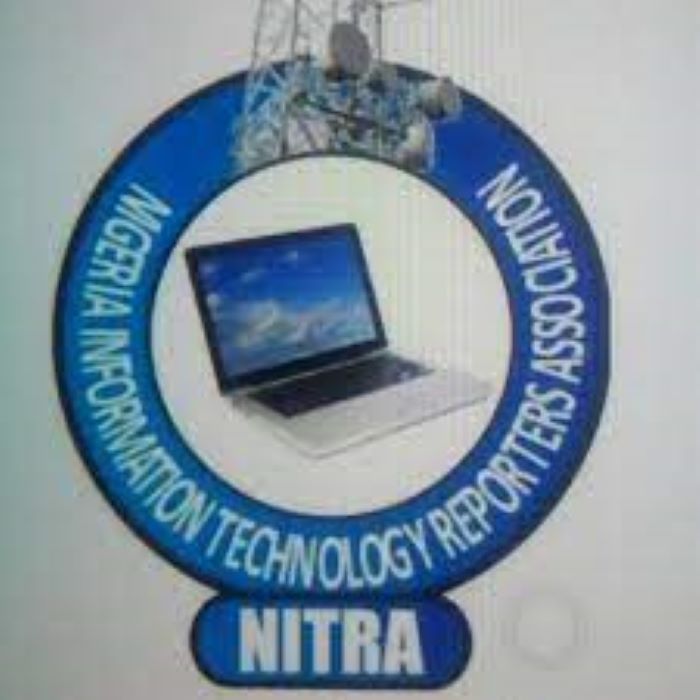Cyriacus Nnaji
Journalists in the Information and Communications Technology sector, under the aegis of the Nigeria Information Technology Reporters Association (NITRA), comprising reporters and editors in broadcast, print and online media has called for the nomination and appointment of a competent Minister of Communications and Digital Economy in the new administration of President Ahmed Bola Tinubu.
In a Press Release that aggregated the views of members and position of the Association, the group, which had in the past consistently engaged stakeholders towards the growth and development of the ICT industry, noted that it will spell retrogression if a Minster, who is not in tune with growth indices in the industry is appointed to drive the most important sector of the economy.
According to the Chairman of NITRA, Mr. Chike Onwuegbuchi, it is imperative to put a round peg in a round hole when appointing the next Minister of Communications and Digital Economy. He said: “As an Association, we implore the President to look at the antecedents of proposed individuals and bring forth someone who has played well in the ICT industry. Someone who knows the challenges, gaps and needs of the industry, and is ready t tackle them head-on to achieve results.”
He noted that in the past few years the ICT industry has experienced much growth, but still has a long way to go to be globally competitive, especially in future techs.
In his views, Pioneer Chairman of NITRA and ICT Editor at This Day Media, Mr. Emma Okonji, pointed to attributes expected of the next Minister of Communications and Digital Economy. “We need a Minister with technology discipline who is digitally savvy and ready to collaborate with industry stakeholders in driving technology development in Nigeria. Such Minister should come from among the various IT bodies and organisations that are registered in Nigeria, and not a politician.
The Minister should be ready and willing to work with ICT Media in enhancing technology development in Nigeria.”
He further noted that the Minister needs to focus more on Tech Startup development in Nigeria and provide the necessary funding, support and mentorship for growth. “It will help the country to produce several unicorns that will drive technology development in the country. The Minister should focus on SME growth using technology as the driving force. Again the Minister should look into the feud between Telcos and the Banks in order to build cordial working relationship among them that will promote growth and development in the ICT sector.”
Echoing same thoughts, Group Technology Editor, LEADERSHIP Group Limited, Mr. Chima Akwaja, said the new Minister must be a technocrat who should be well versed in Telecom industry issues, and a core professional.
Speaking further on the task ahead, Akwaja noted: “He should give the agencies in the Ministry free hands to operate. He should not encroach on their functions; focus on creation of tech hubs in the 6 geopolitical zones and encourage states to have own hubs to train and nurture tech talents; partner with higher institutions on new digital skills training and modules; strategically work with ICT bodies/Associations to create level playing field and attract FDIs; and ensure there is harmony and synergy among the Agencies and other inter-agency regulators.
He also said the minister should work towards creating Technology Banks that would provide seed capital to tech entrepreneurs/startups in the country, and work to promote Local Content in technology usage.
Speaking on the task of a wider stakeholder engagement to be midwifed by the incoming minister, Founder/Editor-in-Chief of Cyber Era, Mr. Clifford Agugoesi noted: “The occupier of the seat must be highly miscible and command respect of stakeholders of the Ministry, among others. Relationship is everything. The FMoCDE should be able to relate well with sister Ministries – Education, Budget & National Planning, Science & Technology, Trade & Investments, Information & Culture, among others. The Minister should also be able to relate well with other arms of government, the Legislature and the Judiciary, and with Industry associations such as ALTON, ATCON, ISPON, NCS, CIMON. The Minister must carry along to ensure policies and strategies are reflective of a wide industry input.
He /She must demonstrate capacity to work collaboratively with these, especially the Press, to strengthen his/her oversight functions and engender accountability. The local ICT media need to be empowered through capacity building programmes, projects and activities and supported through advertisements and institutional support schemes.
He further tasked the new minister on continuity of laudable programmes such as the NDEPS 2020-2030 and Nigerian National Broadband Plan (NNBP) 2020-2025.
“The New FMoCDE needs to be pragmatic. We hold this fact to be sacred that only a pragmatic Minister will enhance the performance of the ICT Ministry and industry and maintain the upward trajectory of ICTs contributions to the GDP. His or her focus should be on “Leveraging ICT to transform Nigeria into a full digital economy.”
Nigeria’s Information and Communications Technology (ICT) sector contributed a significant 17.47% to Nigeria’s GDP (Real Gross Domestic Product) in the first quarter of 2023. This is according to the latest statistics released by the National Bureau of Statistics (NBS).
According to the NBS report, this amounts to about N3.1 trillion of the total N17.75 trillion of the country’s real GDP in the quarter. This is a notable increase in the ICT sector’s GDP contribution, surpassing the figures for the first quarter of 2022 which stood at N2.86 trillion.
The NNBP is to achieve 70% broadband penetration by 2025. The country still has less than 50% penetration. This means there is huge investment potential for investors. Nigeria’s telecom sector needs more investment in the area of infrastructure deployment, and this is one area the minister should focus on, noted the General Secretary of NITRA and Editor at eBusiness Life Communication Limited, Mr. Chidiebere Nwankwo. The ICT sector contributed N3.1 trillion to Nigeria’s GDP in Q1 2023 representing 17.47%.
So far, there has been reduction of the clusters of access gaps to 97 from 207 in 2013.
While describing the reduction in access gap so far as a landmark, NCC boss, Prof. Umar Danbatta said the Commission will not rest on its oars as it thrives to ensure that the remaining 27 million Nigerians, who currently lack access to telecoms services, are provided with services.
The sector contributed 13.23% to the total nominal GDP in Q1 2023, surpassing the rates recorded in both the same quarter of the previous year (10.55%) and the preceding quarter (10.42%). This nominal growth represents a substantial increase of 41.84% during the quarter, marking a 21.30% point rise compared to the corresponding period of 2022.



